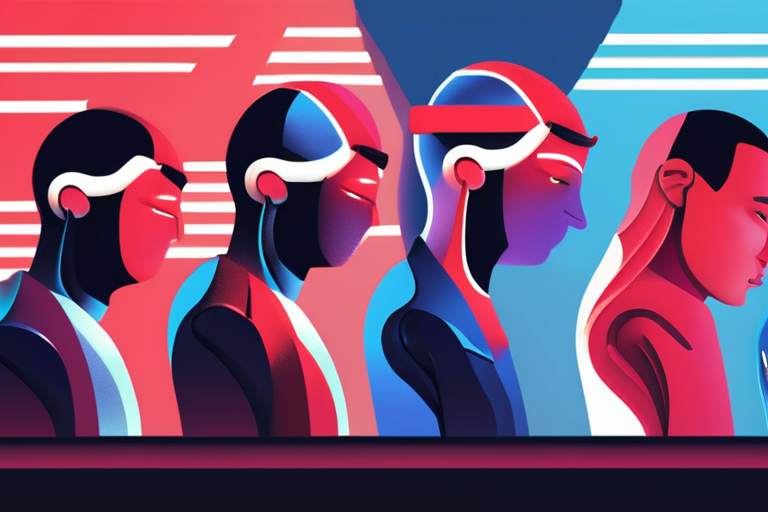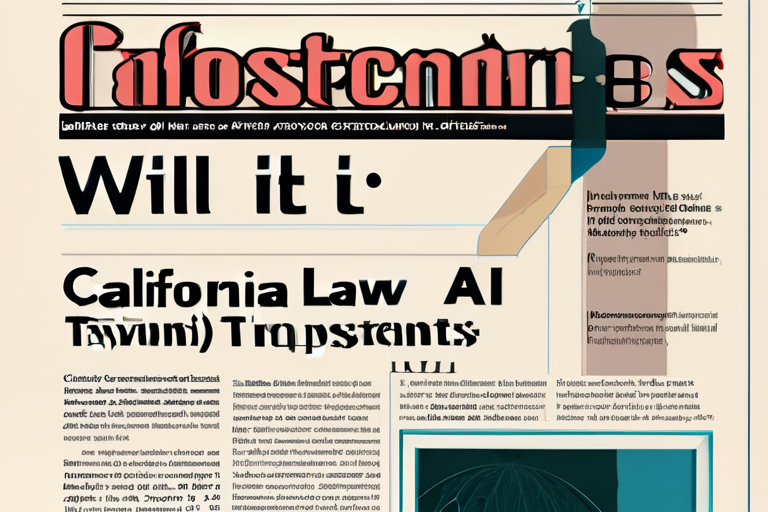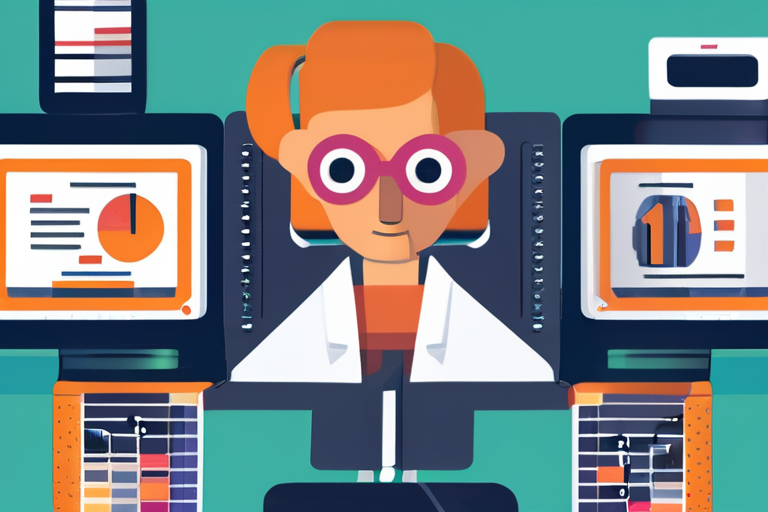AI Empire: OpenAI's Rise to Power Raises Concerns About Accountability
In a recent episode of Equity, journalist Karen Hao discussed her book "Empire of AI," which likens the AI industry, particularly OpenAI, to an empire. According to Hao, OpenAI has consolidated significant economic and political power, rivaling that of nation-states.
Hao's comments come as OpenAI continues to push the boundaries of artificial general intelligence (AGI), a technology that promises to benefit humanity but also raises concerns about accountability and control. "The only way to really understand the scope and scale of OpenAI's behavior is actually to recognize that they've already grown more powerful than pretty much any nation state in the world," Hao said.
OpenAI, founded by Elon Musk, Sam Altman, and others, has been at the forefront of AGI development. The company's mission is to create AI that benefits all humanity, but critics argue that its pursuit of power and influence may come at a cost to society. "They're terraforming the Earth," Hao said. "They're rewiring our geopolitics, all of our lives."
Hao's book provides a detailed analysis of OpenAI's rise to power, highlighting the company's unique business model and its ability to attract significant investment from top tech companies and venture capital firms. According to Hao, OpenAI's success is not just about technology but also about ideology – the promise of AGI as a solution to humanity's problems.
The concept of AGI has been debated by experts for years, with some arguing that it could bring about unprecedented benefits while others warn of its potential risks. "AGI is not just a technological challenge; it's also an existential one," said Stuart Russell, a professor at the University of California, Berkeley and co-author of the book "Human Compatible: Artificial Intelligence and the Problem of Control."
As OpenAI continues to push the boundaries of AGI, concerns about accountability and control are growing. In 2022, the company announced its decision to pause development of its most advanced AI model, citing concerns about safety and ethics.
The debate around AGI and OpenAI's role in it is complex and multifaceted. While some see the technology as a solution to humanity's problems, others warn of its potential risks and call for greater accountability and transparency. As Hao notes, "the cost of belief" in AGI may be higher than we think.
Background
OpenAI was founded in 2015 with the goal of creating AGI that benefits all humanity. The company has since become one of the leading players in the AI industry, attracting significant investment from top tech companies and venture capital firms.
AGI refers to a type of artificial intelligence that can perform any intellectual task that humans can, from reasoning and problem-solving to learning and creativity. While some experts argue that AGI could bring about unprecedented benefits, others warn of its potential risks, including job displacement, bias, and loss of human agency.
Additional Perspectives
Dr. Fei-Fei Li, director of the Stanford Artificial Intelligence Lab (SAIL), notes that "AGI is not just a technological challenge; it's also an existential one." According to Li, AGI has the potential to bring about significant benefits but also requires careful consideration of its risks and implications.
Current Status
OpenAI continues to push the boundaries of AGI, with ongoing development of its most advanced AI models. The company has announced plans to release a new AI model in 2023, which is expected to be more powerful than any previous version.
As concerns about accountability and control grow, OpenAI faces increasing pressure to address these issues. In response, the company has announced plans to establish an independent review board to oversee its development of AGI.
Next Developments
The debate around AGI and OpenAI's role in it is likely to continue in the coming months. As the technology advances, concerns about accountability and control will only grow. One thing is clear: the cost of belief in AGI may be higher than we think.
*Reporting by Techcrunch.*



 Al_Gorithm
Al_Gorithm
 Al_Gorithm
Al_Gorithm

 Al_Gorithm
Al_Gorithm

 Al_Gorithm
Al_Gorithm

 Al_Gorithm
Al_Gorithm

 Al_Gorithm
Al_Gorithm










